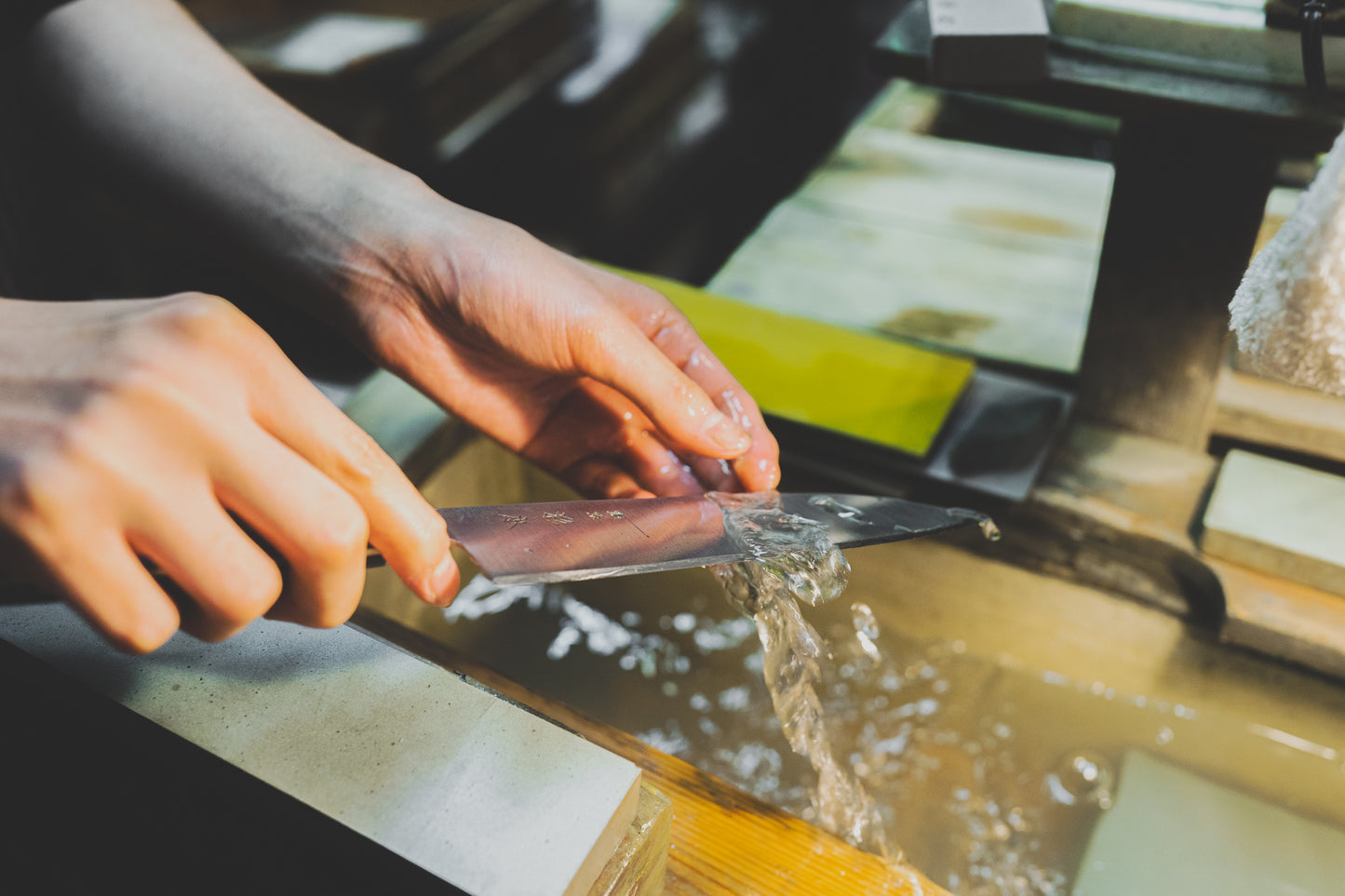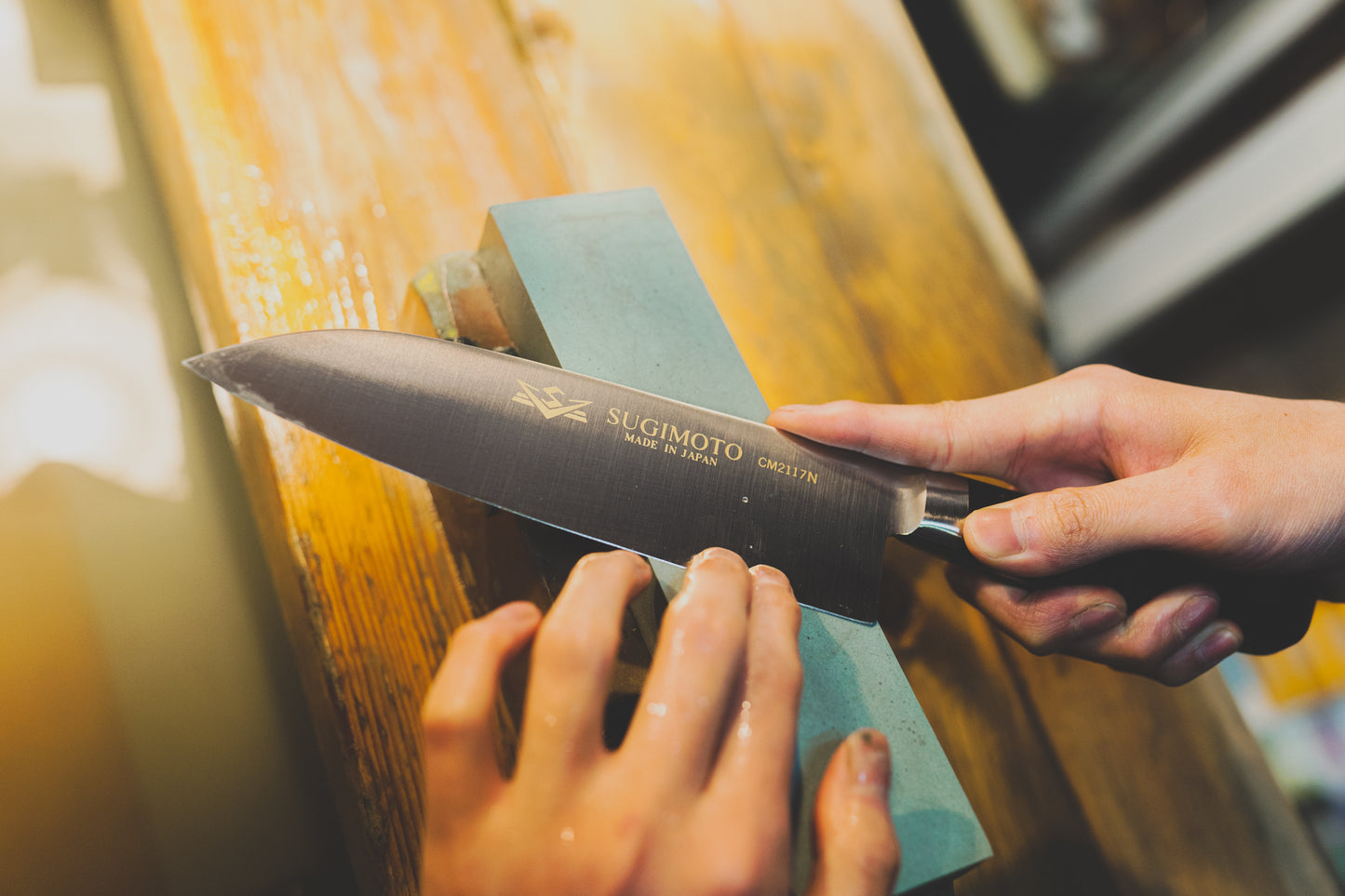Column — KnifeSharpening
Skill Levels of Sharpening Knives and the Required Finish of Edges
We take knife sharpening very seriously because only by mastering this skill can we ensure that the full potential of any knife is brought out, resulting in an excellent edge. Proper knife sharpening skills are essential for bringing out the best in any knife. Even the finest, most expensive knives won't achieve an excellent edge without the touch of a skilled hand. Conversely, even any knife can have an incredibly sharp edge with the work of a skilled artisan. The excellent finish of an edge depends more on the skill of the person who sharpens it than on the quality...
We use whetstones to sharpen our knives.
In Japan, knife making centers around using hard steel. To maximize the quality of these knives, we have a culture of sharpening them with whetstones. To finish the edges to suit their intended use, we use whetstones of different grit sizes to sharpen Japanese knives made of hard steel. We often receive inquiries from overseas customers asking if it's possible to sharpen Japanese knives using sharpening steels. If the question is about feasibility, then yes, it is certainly possible. However, while it's not always the case if done carefully, using a sharpening steel is generally not compatible with Japanese knives...
Have you ever thought about the lifespan of a knife?
Have you ever considered the lifespan of a knife? Nowadays, it has become common to see knives sold at dollar stores, which might lead some to view them as disposable commodities. However, in Japan, knives are crafted with the intention and belief that they should be used for a lifetime. To achieve lifelong durability and quality in knives requires high-quality materials, proper heat treatment, and sharpening skills that take years for artisans to master. In Japan, despite a decline in the number of people who sharpen knives at home, there is a longstanding tradition of doing so. It has been...
Recent articles


